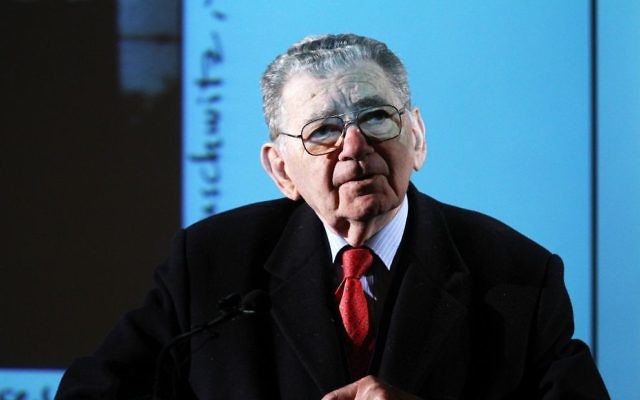Lermer mourned
TOUGHENED by his devastating journey through the Shoah, but summoning a spirit of optimism and reconciliation – that is how family, friends and colleagues at the Jewish Holocaust Centre remember Willy Lermer.
TOUGHENED by his devastating journey through the Shoah, but summoning a spirit of optimism and reconciliation – that is how family, friends and colleagues at the Jewish Holocaust Centre (JHC) remembered Willy Lermer, who passed away late last month.
Lermer, a survivor of numerous Nazi camps including Auschwitz, was a volunteer guide at the Jewish Holocaust Museum and a life governor on the JHC board.
In 1942, aged 19, Lermer was forced to leave his family behind in Mysienice, southern Poland, and was sent to the Plaszow labour camp. Liberated from Dachau in 1945, he emerged into a world from which almost all his family had been taken. In 1948 he married his late wife Eva, and arrived in Australia in 1950.
“I lost my parents, a sister who was only 12 years old, my grandmother, aunts, uncles, cousins. They all perished,” he once related. “I believe that maybe God had something to do with me surviving – and lots and lots of luck.”
As a Holocaust Museum guide for almost a quarter-century, and visiting schools in regional Victoria, he told his story to thousands of students. “I always try to pass on to them the importance of freedom and the importance of non-hatred,” he said.
When Julia Gillard, as prime minister, visited the museum in 2012, Lermer recounted to her in chilling detail the route at Auschwitz from the trains to the gas chambers.
His memoir, From Hell to Salvation, was launched at the JHC in December last year.
In 2015, Lermer was recognised with an Order of Australia Medal (OAM) for his work as a guide at the museum, for translating the museum’s German-language archives to English and for his visionary board membership, and his volunteerism with the City of Glen Eira.
Speaking at his funeral, Pauline Rockman, JHC co-president, reflected: “Willy was so loved, so cherished and so valued … His life’s story and its positive messages have left an inedible mark, not only on all who knew him at the Holocaust Centre, but on tens of thousands of students and others.”
PETER KOHN


comments